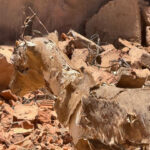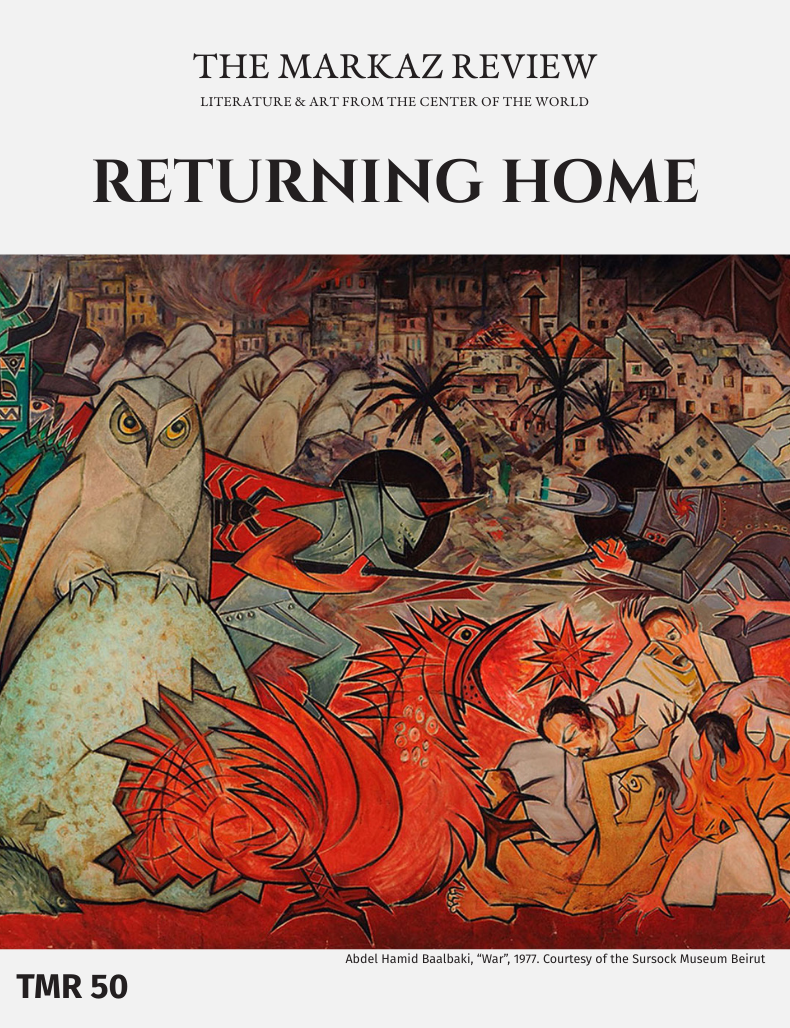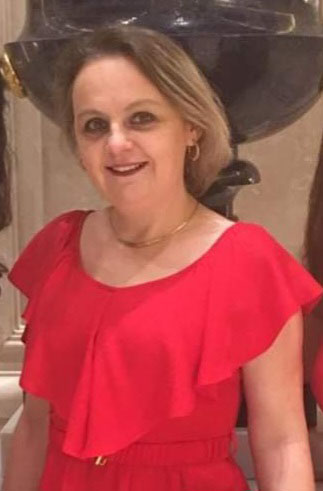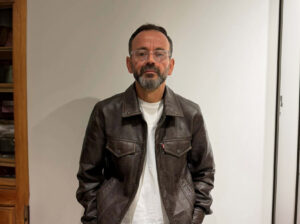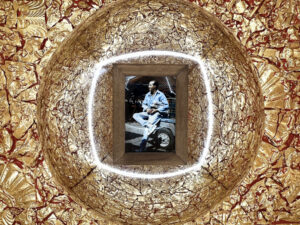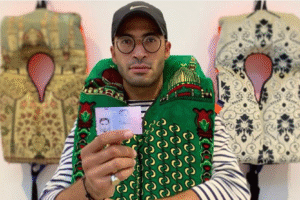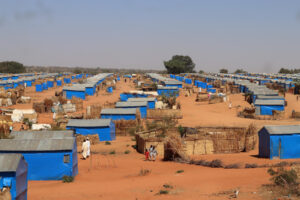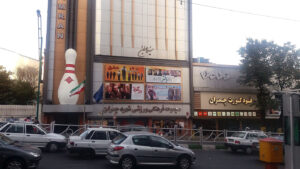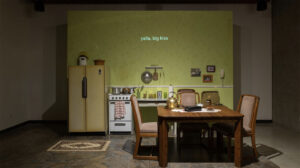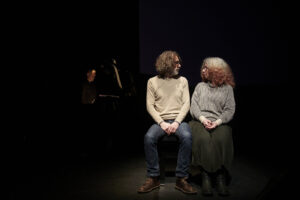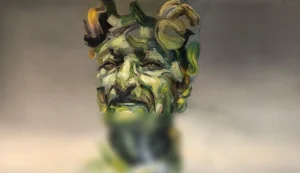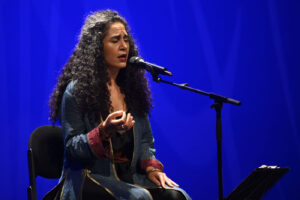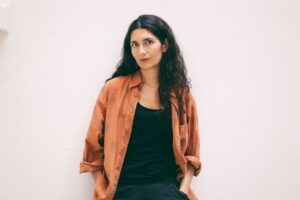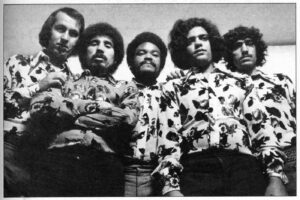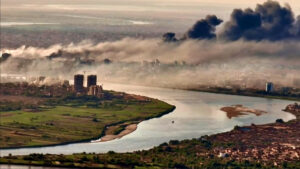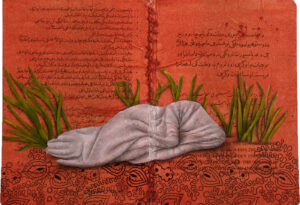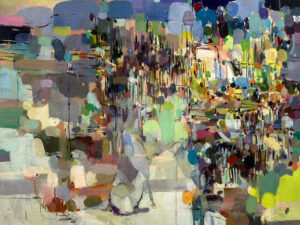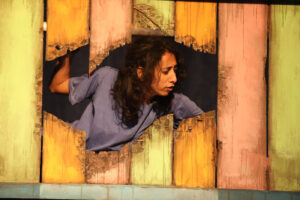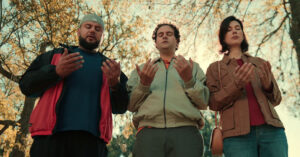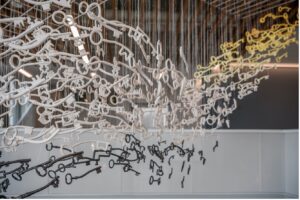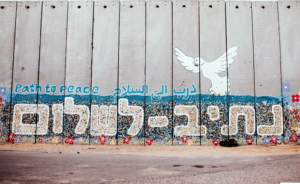As Sudanese refugees in Egypt navigate exile, the question of home remains complex. While some hold onto the hope of returning and plan a potential path forward, others choose to close that chapter — for now. Through the stories of musicians, filmmakers, and cultural guardians, we unveil how the Sudanese diaspora continues to cherish and preserve its identity and heritage from afar.
“Two years since the crisis began, nearly 13 million people — one in three Sudanese — have been displaced. This includes 8.6 million people displaced within Sudan and 3.8 million refugees and refugee returnees,” the UN Migration Agency notes. Since the war in Sudan’s outbreak in April 2023, Egypt has hosted 1.5 million, the largest number of Sudanese refugees.
And yet numbers are but a silent reflection of the harsh reality, and often overlook the human stories behind them. The truth behind those numbers speaks of people who while living in exile, are trapped between shattered lives, torn dreams, and — what’s even worse — no clear end to the war in sight.
For almost two years now, I’ve explored the vast world of Sudanese nationals in Cairo: filmmakers, musicians, heritage custodians, and cultural researchers — a community of creatives that exceeds over 700 people. Through my humble journey, I came to understand the overwhelming endurance that characterizes the Sudanese diaspora, a force that fuels their existence, and helps them breathe for Sudan in exile.
Some who established their new homes in Cairo and Giza, but also in Alexandria, Damietta and Aswan, relaunched their careers, while others embraced new directions. As the war continues, many Sudanese refugees now find themselves caught between memory and reality, torn between the desire to return home and the need to move forward. For some, home is still a dream worth waiting for; for others, it’s a chapter they’ve been forced to close — for now.
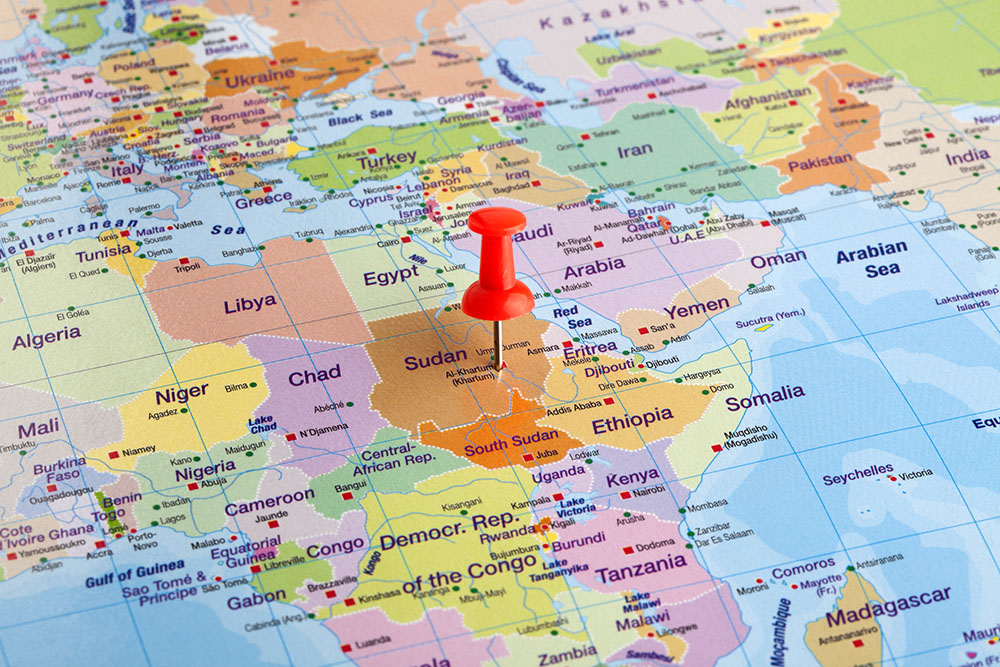
Home is where the heart stays
“I will return to Sudan the minute the war ends,” Dafallah Al-Haj, founder of the Sudanese Traditional Music Center and Museum in Khartoum, tells me without hesitation, as he stretches a leather membrane over the tambour’s frame, in his new Cairo workshop. Today in his early 50s, Al-Haj’s decision is not linked just to his decades-long work in documenting and safeguarding Sudanese traditional instruments and music, it is also about his soul and belonging.

Renowned scholar and guardian of cultural heritage, Al-Haj lost everything: his house, fields, and the center, home to almost 200 original instruments he had collected from all across Sudan, and dozens more he crafted himself. Everything was reduced to ashes within the first weeks of war. But Al-Haj remains unwavering. “The war will not conquer me. I work with heritage, whether in Khartoum or in Cairo. I can wait months and years, but I will return to my country and to people who know me,” he says, underscoring his strong connection with homeland, heritage, family, and friends.
In Cairo, Al-Haj finds himself in the instruments, seminars on heritage, and in the Camerata for Folkloric Arts, an extension to his Sudan-based band, now established and performing across Egypt. In parallel, he has already started working on rebuilding the lost riches, for Sudan, a project he set in motion eight months ago.
But Sudan remains closer to him that one would imagine. “I know people from Nuba, Darfur, Blue Nile Region, etc. I asked them to start producing new instruments. They are in safe areas, amongst nature — it is easier for them to get the materials.” He reveals that 15 new instruments have already been produced in Sudan. The initiative not only allows Al-Haj to begin the rebuilding process, but also provides a much needed, if symbolic, financial support to the local craftsmen. Al-Haj is also in contact with his team that organizes limited-scope activities, presenting Sudanese heritage to people in Atbara, Damazin, Port Sudan, “so they don’t lose touch with their roots.”
Though Al-Haj counts days to his return, he acknowledges that not everyone is able to do so, “as each person carries their own story.”

Preserving knowledge in exile
As the director of the Sudan Natural History Museum Sara Saeed observes, “People were forced to leave, it was not our choice.” Saeed was among the first to sound the alarm about destruction of Khartoum’s museums. Hardly two weeks after the eruption of war, she wrote a call published by the ICOM ARAB, a Regional Alliance of the International Council of Museums, on Twitter, about museums being caught in the crossfire. Photos from the following weeks show the museum’s destruction and the loss or looting of its biological treasures.
Though she dreams of returning home, where her husband and large family remains, she is uncertain about the future. “It’s no longer up to me. I’m in my late 30s. My children are in school in Cairo, where I also teach biology. What can I give to my children in Sudan?”
She points to constant escalations between Rapid Security Forces (RSF) and the army, spikes of violence, attacks on women and girls, among many other atrocities. “There is no infrastructure, lack of proper education, failing medical care, water shortages, and no electricity since the ‘valuable’ electricity cables have been stolen. Khartoum and Omdurman [a city northwest of the capital] remain unsafe.”

Sudan has yet a long road to reassure Sara Saeed before she returns home. For now, she just remains hopeful to rebuild the museum. Meanwhile, together with her close friend, another academic, Rania Baleela, Founding Director, Toxic Organisms Research Centre (affiliated with the Faculty of Science, University of Khartoum), Saeed looks for ways to support Sudan from outside the country. Currently established in the UAE, Baleela awaits the war’s end with her children. The two are however connected academically continuing their research, co-authoring several works, such as: “The role of social media in public health awareness during times of war in Sudan: snake bites and scorpion stings.” This is coupled with an active Facebook group providing information in an accessible Arabic language about those species and protection methods.
The end of a cultural home
Sudan’s museums, once guardians of history, science, and memory, were reduced to rubble, and looted. The long list of lost riches also includes the House of Heritage, a not-for-profit cultural centre in Khartoum.
The now completely destroyed edifice, the House of Heritage, a key player on the Sudanese landscape, was home to services aiming at documenting, safeguarding, and disseminating tangible and intangible cultural heritage, providing capacity-building workshops, music and oral traditions performances, among other cultural practices. It held a large collection of manuscripts, photos, magazines, and books speaking of the country’s cultural wealth.
To Ismail El-Fihail who founded the House of Heritage in 2016, the loss is more than just physical — it is the erasure of his life’s work. “The computers, hard disks, decades of documentation, and technological equipment… — all is gone. The digitization project is in big part not accessible. We [also] lost 150 paintings by contemporary Sudanese artists, worth more than $200,000 USD,” he enumerates.
“I am 74-years-old, I have worked in this field since 1977. I don’t think I can start from scratch. It was my life project. No matter where life took me, I have always been returning to Sudan, to ‘my’ heritage. But now, all is gone.” El-Fihail mentions his own rich portfolio that includes a PhD from Germany, and journeying across the Arab countries.
The loss of the House of Heritage remains a deep wound. Yet since his arrival to Cairo in mid-May 2023, El-Fihail continues his work through workshops and collaborations with UNESCO, Egyptian institutions, and youth-focused programs. His hope is to build a new generation aware of their cultural history and heritage.
Generational divide
For many Sudanese refugees, the question of return is dictated not only by war or the loss of a life once built, but also by new lives taking root in Egypt and other countries. Each generation faces different opportunities and experiences longing in its own way.
Thoughts about home expressed by people working in cinema and music industries reflect a broad range of perspectives.
Ibrahim Shaddad, a towering figure of Sudan’s cinematic golden age (1960s–1980s) and co-founder of the Sudanese Film Club, arrived in Egypt shortly after the war erupted. Now in his 80s, his legacy is celebrated across Arab and Egyptian film festivals, while he continues trying to integrate within the local cinematic community. Though no stranger to exile — having lived in Egypt and Canada in the past — Shaddad still longs for home. During one of my encounters with Shaddad, he urged young filmmakers to consider returning to Sudan, so they stay rooted, “live and breathe the country,” as he put it.
Those words echo through the creative path of veteran Sudanese actor Nazar Gomaa, best known for his lead in Mohamed Kordofani’s Goodbye Julia (2023), the first Sudanese film to be screened at the Cannes Film Festival, winning the Freedom Prize. In Egypt, Gomaa plays in several local productions, a few Sudanese projects, and currently finalizes work on the film Lion (also known as Black Lion) directed by Mohamed Diab. The epic film draws inspiration from the life of Ali bin Muhammad Al-Farsi, a historical figure who led a Zanj or slave revolt against the Abbasid empire, played by Egyptian star Mohamed Ramadan.
Although his career has begun flourishing in Egypt, Gomaa is ready to return to Sudan as soon as the war ends. “I love my home country. I don’t want to stay away from it. For now the return is impossible due to total destruction, but this too shall pass,” he insists that returning home is only a matter of time.

However actress Eiman Yousif, who co-starred beside Gomaa in Goodbye Julia does not share his view. We also remember her from the 2018 revolutionary protests in Khartoum in which she wholeheartedly took part, hopeful for change in her country. Today, in her 30s, and in Cairo, she seems to be turning the page on Sudan. The young talent continues to explore acting and singing opportunities in Egypt, while eyeing the Arab region.

Countless other Sudanese artists from different generations — actor Mahmoud Alsarraj, actress Islam Mubarak, among others — shape their decisions by a complex mix of factors. More research is needed to fully understand what choices the Sudanese diaspora will make, what drives or deters them from returning home.
Director and producer Mohammed Altraifi assumes that many older individuals, even those facing financial hardship, are emotionally drawn to return. He refers to the idea as born of social ties with the homeland, unaffected by the unlivable conditions in parts of Sudan. He also points to those in their 30s to 50s who arrived in Egypt with large families. “Sometimes only one person in the family finds work. This huge responsibility is also at the core of many choices.”
As for his own decision, Altraifi expresses a sharp sense of realism. “I can calculate it with great precision. Emotionally I want to return to Sudan, but reasonably, there is no gain from doing so.”
He pauses for a while as though weighing his words, before adding: “Actually it is impossible! I lost trust. I spent years building my company [Marbles Art Production], projects, only to lose it all in a blink. There is no guarantee this won’t happen again. I can contribute more through working from outside Sudan.” He lists many projects (directorial, distribution, production) that he is pursuing with Egyptian partners, while embracing Sudanese nationals. He plans to stay anchored in the country, while possibly rejoining his family in the UAE.
Azza fi Hawak
Sudanese hearts gathered in exile, their thoughts, fears, and nostalgia can be understood through “Azza fi Hawak,” a famed patriotic Sudanese song often performed during times of unrest. Its lyrics are a poetic expression of love, longing, and deep connection to both a person (Azza) and the homeland. The lyrics not only capture romantic love but also embody Sudan’s beauty, strength, yearning, connection, and cultural heritage.

“Azza fi Hawak” is part of the repertoire regularly performed by Elsafi Mahdy’s choir across Egypt. Shortly after arrival to Cairo in late 2023, the renowned Sudanese musician, conductor, and lecturer at the College of Music and Drama at Sudan University of Science and Technology, founded Aswat Sudaneya (Sudanese Voices), a replica of his Khartoum-based ensemble. In no time, he brought together dozens of vocalists and 11 musicians of a few generations, helping them find a sense of belonging through music.
“We all wonder if we should return home. It is a difficult question, and the answer depends on individual cases,” he comments while offering music as a tool for unity and healing among displaced Sudanese. In Egypt, Mahdy has found a sense of comfort, perhaps a “different home.”
“It is relatively good to live here; we find a reflection of our culture somehow,” he says, while keeping the doors of return ajar.
Mahdy, alongside numerous other musicians, filmmakers, actors, heritage custodians, carry with them the knowledge, artistry, and memory of a country now struggling to remember itself. To them home is not only a place; it is memory, identity, and longing. Though many of them might find in Egypt a temporary refuge, or glimpses of belonging, they will continue to cherish what was left behind. Navigating a world that no longer resembles the one they once knew, they express themselves in music, through films, memories, and in the unshakable hope of rebuilding what was lost.
Further Resources
Read
African Books Collective
UK-registered, African owned, worldwide marketing and distribution outlet for books from Africa — scholarly, literature and children’s books.
Sudanese Cinema: Past, Present and Future
Co-authored work, Art and Design Review, 2021.
River Spirit
Leila Aboulela, Grove Press, 2023.
(Un)doing Resistance: Authoritarianism and Attacks on the Arts in Sudan’s 30 Years of Islamist Rule
Ruba El-Melik, Reem Abbas. Andariya Sudan, 2022.
Season of Migration to the North
Tayeb Salih (described as “genius of the modern Arabic novel”), first published 1966.
Listen
Instrumental rendition of “Azza fi Hawak,” famed patriotic song that carries a poetic expression of love, longing, and deep connection to both a person (Azza) and the homeland.
Sudanese Voices choir sings Falaq Al-Sabah (Dawn’s Break), an iconic song from Sudanese musical heritage. With lyrics penned by renowned poet Khalil Farah. Filled with hope, the song uses the symbolic breaking of dawn to talk about renewal, and the beauty of a new beginning.
Sudanese Voices choir sings Maria, a Sudanese classic song, to poetry by Sudanese poet Salah Ahmed Ibrahim in 1962. The poem was inspired by his admiration for a Greek woman named Maria. Note the percussion solo (Sudanese rhythms) in the middle of the track.
Watch
Insan (Human Being, 1994), dir. Ibrahim Shaddad
One of the iconic films of Sudanese cinema, Human Being is a dialogue-free short narrative about a villager from South Sudan feeling alienated in a large city. The film was screened globally.
Interesting to listen:
Ibrahim Shaddad answers questions about two of his films: Jagdpartie (Hunting Party) and Insan (Human Being).
Beats of the Antonov (2014), dir. Hajooj Kuka
“This documentary is a story of the people of the Blue Nile and Nuba Mountains in Sudan. Set during the civil war, the film captures how music serves as a vital means of cultural expression and resilience for communities in Sudan’s conflict zones.
You Will Die at Twenty (2019), dir. Amjad Abu Alala
Based on a short story by Sudanese writer Hammour Ziada, this coming-of-age is set in a remote Sudanese village where a young boy is told he will die at the age of 20. Blending mysticism with quiet rebellion, the film explores fate, freedom, and the search for identity in a society bound by tradition. This is the first ever film from Sudan submitted for the Best International Feature Film at the 93rd Academy Awards (2020) but was not nominated.
Talking About Trees (2019), dir. Suhaib Gasmelbari
This documentary follows the efforts of the Sudanese Film Group (Ibrahim Shaddad, Manar Al Hilo, Suleiman Mohamed Ibrahim, and Altayeb Mahdi,) as they strive to create cinema in Sudan. It is a story of great passion amongst political challenges of the country. The film premiered at the Berlin International Film Festival, and went on to garner many international awards.
Goodbye Julia (2023), dir. Mohamed Kordofani
The film follows a northern Sudanese family with a woman wracked by guilt after covering up a murder. Infused with scenes from protests, it is a story presenting cultural, religious, social differences tearing the country apart. The film won the Freedom Prize at the Cannes Film Festival in 2023, where it premiered – being the first ever Sudanese film to compete in Cannes. The film was submitted for the Best International Feature Film at the 96th Academy Awards (2023), but was not nominated.
Sudan, Remember Us (2024), dir. Hind Meddeb
The film chronicles defiance among young Sudanese activists in Khartoum during the 2019 revolution , overthrow of Sudanese leader Omar Al-Bashir, and following it the military crackdown. The film premiered at the Venice International Film Festival.




